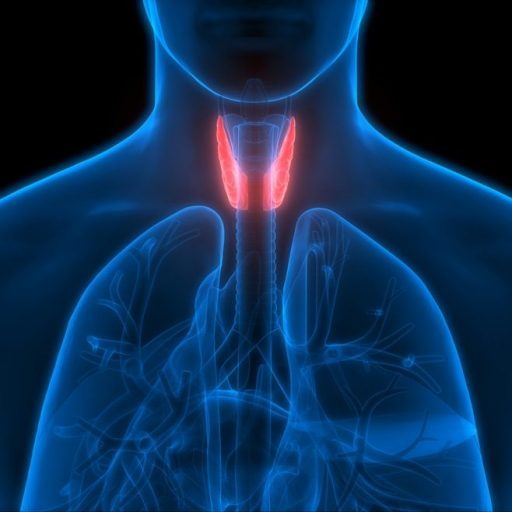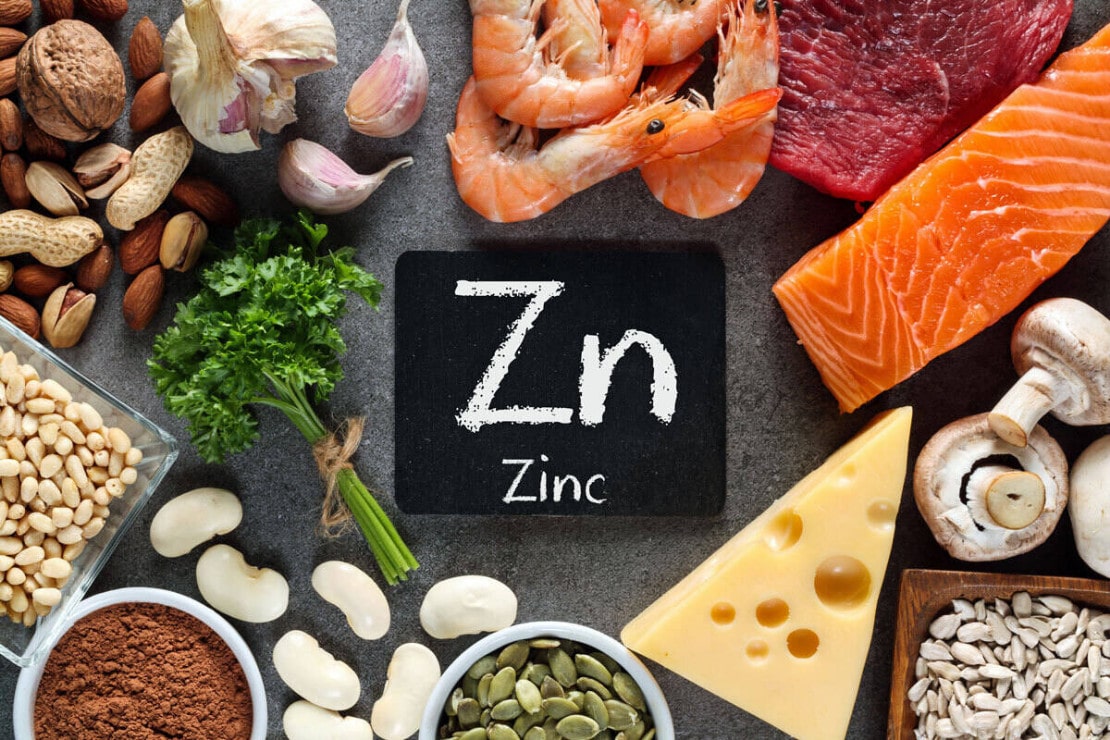Zinc, denoted as Zn on the Periodic Table, has an atomic number of 30. It belongs to the group of transition metals. Zinc (Zn) is a naturally occurring element, widely distributed in the Earth’s crust. It is the 24th most abundant element, with an average concentration of 79 mg/kg (Millour, S. et al., 2011).
Zinc ores, such as sphalerite, are the primary global source of this element. Furthermore, zinc is often found in conjunction with other base metals, like copper and lead. To extract it, these ores undergo a refining process called roasting. This process oxidizes Zn sulfide to Zn oxide, followed by reduction with carbon or carbon monoxide.
Zinc and your body
The body needs it to function for a myriad of reasons. It plays a crucial role in cellular metabolism. Moreover, over 300 enzymes need the element for their catalytic activity (Vallee, B.L. et al., 1993). It also plays a role in DNA synthesis, cell division, and protein synthesis. Importantly, zinc contributes to the maintenance of the immune system’s functionality (Prasad, A.S., 2008).
The three most crucial functions or organs in the human body that depend on Zinc are:
The immune system
Zinc assists in the function of T-cells, which are integral to the immune response. Zn directly influences the maturation and differentiation of T-cells. In particular, it impacts the thymus gland, where T-cell maturation occurs. Significantly, Zinc deficiency results in thymic atrophy, a reduction in T-cell numbers. Furthermore, it adversely affects cytokine production, a vital part of T-cell function.
Cytokines are proteins released by T-cells that aid in immune responses. For instance, the element modulates the production of Th1 cytokines, including Interferon-gamma (IFN-γ) and Tumor Necrosis Factor-alpha (TNF-α). Both cytokines are crucial for combating intra-cellular infections. Therefore, insufficient Zinc intake can weaken the body’s defense against such pathogens.
Zn enhances the cytotoxic activity of T-cells. This process is essential for fighting off infected or cancerous cells. In Zinc deficient conditions, the cytotoxic activity of T-cells reduces, leading to weakened immune responses.
Zinc supplementation can improve T-cell function in deficient individuals. It restores the production of cytokines, enhances cytotoxic activity, and promotes T-cell proliferation. Nevertheless, excess Zinc intake can also be harmful, inhibiting the function of other immune cells. Therefore, maintaining optimal Zn levels is essential for a well-functioning immune system.
In summary, the element plays a pivotal role in T-cell function and immune responses. Its deficiency impairs T-cell maturation, cytokine production, and cytotoxic activity. Thus, maintaining adequate Zn levels is vital for a robust immune system. However, both deficiency and excess of Zinc can lead to detrimental effects, emphasizing the need for balanced Zinc intake.
The skin
Zinc aids in maintaining the integrity of the skin and mucous membranes. The element plays an indispensable role in maintaining healthy skin and mucous membranes. It is a trace element involved in various metabolic functions. Its importance is vast, contributing to DNA synthesis, protein production, and cellular metabolism. Therefore, Zinc availability impacts the integrity and function of these barriers.
Zn accelerates the process of wound healing. It aids in the formation and maintenance of collagen, a critical protein in skin tissue. Furthermore, it supports the immune system by controlling inflammatory responses. Thus, it can help manage conditions like acne or dermatitis.
Zinc also demonstrates antioxidant properties. It actively scavenges free radicals, preventing oxidative stress damage to the skin. Simultaneously, it assists in the creation and boosting of antioxidants within the body. As a result, it promotes overall skin health.
Interestingly, the element is crucial in the formation of mucous membranes too. It stimulates the production of mucin, a key component of mucus. Consequently, it contributes to the resilience of mucous membranes in the body.
Deficiency of this micro-nutrient can lead to several skin disorders. These include delayed wound healing, rough skin, and inflammation. Also, mucosal surfaces may become susceptible to infections. Accordingly, maintaining optimal Zn levels is paramount.
Incorporating Zinc-rich foods into the diet can help maintain healthy skin and mucous membranes. Oysters, red meat, and poultry are excellent sources. Alternatively, Zn supplements can be considered under professional guidance.
The element ‘s role in promoting healthy skin and mucous membranes cannot be understated. It impacts various cellular functions, aids wound healing, and displays antioxidant properties. Additionally, it boosts mucous production, reinforcing our body’s first line of defense. Therefore, ensuring adequate Zinc intake is vital for overall skin and mucosal health.
The brain
Zinc plays a vital role in neurotransmission and cognitive function. The element acts as a modulator of neurotransmitter activity. Specifically, it interacts with glutamate, the brain’s primary excitatory neurotransmitter. Zinc’s interaction with glutamate influences cognitive processes. Moreover, it impacts memory and learning.
The effect of Zn on cognition can be explained through its role in glutamatergic neurotransmission. NMDA (N-methyl-D-aspartate) receptors, which are glutamate receptors, are sensitive to Zn. Subsequently, zinc modulates these receptors, affecting synaptic plasticity. Furthermore, synaptic plasticity is crucial for learning and memory processes.
Zinc deficiency can negatively impact cognition. It results in altered neurotransmission, affecting learning and memory. Dietary zinc supplementation can potentially counter these effects. Therefore, maintaining adequate Zn levels is crucial for optimal cognitive function.
Zn^2+ ions serve as potent inhibitors of NMDA receptor activity. The formula Zn^2+ + NMDAR -> Zn^2+-NMDAR demonstrates this interaction. As a result, zinc alters the receptor’s activity and modulates synaptic transmission.
The element also has an essential role in the formation of proteins related to synaptic plasticity. For instance, it’s vital for the synthesis of BDNF (Brain-Derived Neurotrophic Factor). Hence, Zn influences both neurotransmission and neuroplasticity.
Zinc plays a crucial role in neurotransmission and cognitive function. Its interactions with glutamate receptors modulate synaptic plasticity. This interaction affects cognitive processes, such as learning and memory. Thus, maintaining optimal zinc levels is essential for brain health.
Moving on, zinc deficiency can lead to severe health issues. Symptoms include loss of appetite, growth retardation, and immune dysfunction. Although Zn deficiency is rare in developed countries, it’s prevalent in areas where people’s diet is low in animal protein and high in legumes and whole grains (Hambidge, M., 2000).
Toxicity
Zinc toxicity can also occur with excessive intake. Symptoms include nausea, vomiting, and abdominal pain. Long-term overconsumption can lead to copper deficiency and altered iron function (Fosmire, G.J., 1990).
In conclusion, the element is a crucial element for human health. Its roles range from cellular metabolism to immune function. Therefore, maintaining the right zinc levels in our body is critical. However, both deficiency and excess can lead to severe health issues. Hence, a balanced intake is of utmost importance.
Natural Wholefoods containing Zinc
The recommended daily intake of zinc is 14mg for males, 8mg for females. The upper tolerable intake is 40mg per day. Note that zinc absorption is reduced by fiber, phytic acid (present in grains and legumes), other minerals. Excessive amounts of zinc is lost in diabetes via the urine.
Below is a list of natural wholefoods containing zinc:
| Food | mg per serving |
| Oysters (6 med) | 19mg |
| Beef steak cooked (120g) | 6mg |
| Lamb cooked (120g) | 5mg |
| Scallops (10 med) | 5mg |
| Amanrath seeds (100g) | 3mg |
| Crayfish (1/2 cup/80g) | 3mg |
| Pork cooked (90g) | 2.2mg |
| Cashew nuts (1/4 cup/40g) | 2mg |
| Lentils/Chickpeas/Beans cooked (1 cup) | 2mg |
| Red Rice cooked (1 cup) | 1.5mg |
| Pumpkin seeds (20g/1 tbs) | 1.5mg |
| Peanuts (1/4 cup/40g) | 1.2mg |
| Quinoa cooked (1 cup) | 1mg |
| Milk Cow or Soy(1 cup) | 1mg |
| Cheese cheddar (30g) | 1mg |
| Sunflower seeds (1 tbs/16g) | 1mg |
| Chia seeds (15g) | 1mg |
| Porridge cooked (3/4 cup) | 0.8mg |
| Chicken cooked (100g) | 0.8mg |
| Fish cooked (1 med fillet – 120g) | 0.7mg |
| Peas cooked (1/2 cup) | 0.6mg |
| Egg (1 large) | 0.5mg |
| Brown rice cooked (1 cup) | 0.5mg |
| Sweetcorn (1 cob/85g) | 0.3mg |
| White rice cooked (1 cup) | 0.2mg |
References:
- Millour, S. et al. (2011). Zn distribution in soils and risk of transfer to crops and grazing animals in the Region Champagne-Ardenne, France.
- Vallee, B.L. et al. (1993). The Biochemical Basis of Zinc Physiology.
- Prasad, A.S. (2008). Zn in Human Health: An Update.
- Hambidge, M. (2000). Human Zn Deficiency.
- Fosmire, G.J. (1990). Zn Toxicity.






